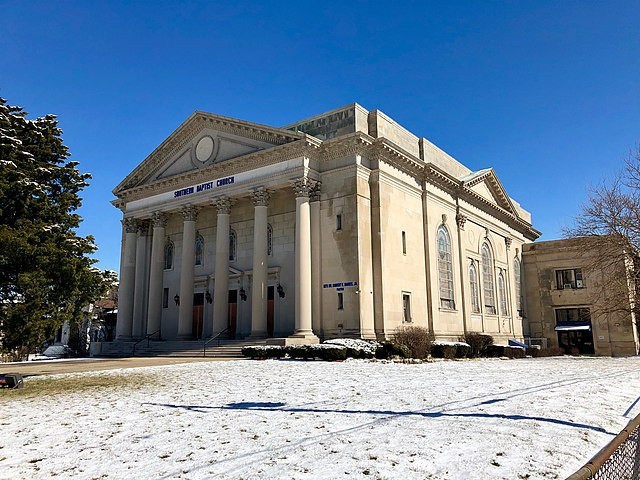In a closely watched and highly anticipated vote, the Southern Baptist Convention (SBC) narrowly rejected a proposal to enshrine a ban on women pastors in its constitution. Despite 61% of delegates supporting the measure, it fell short of the required two-thirds supermajority, reversing a preliminary vote from last year that had favored the ban.
The proposal aimed to formalize the exclusion of churches with women in any pastoral roles, reinforcing the SBC's official doctrinal stance that the office of pastor is reserved for men. The vote took place on the final day of the SBC's annual meeting in Indianapolis, highlighting a deeply rooted debate within the largest Protestant denomination in the United States.
Opponents of the amendment argued that the SBC already possesses the means to oust churches that appoint women pastors, citing previous actions taken against such churches. "We have shown the mechanisms we currently have are sufficient to deal with this question," said Spence Shelton, pastor of Mercy Church in Charlotte, North Carolina.
Since 2000, the SBC's statement of faith has declared that only men are qualified for the role of pastor. However, interpretations vary, with some members believing it applies only to senior pastors, allowing for female associate pastors under a male senior pastor. The proposed amendment would have explicitly excluded churches that employ or affirm women in any pastoral capacity.
Southern Baptists Reject Tighter Ban on Women in Pastoral Posts: The denomination voted against adding language to its constitution saying that “only men” could be affirmed or employed “as any kind of pastor or elder as qualified by Scripture.” https://t.co/UpZUsa52Yo pic.twitter.com/FYPCt8lmQU — Global Voters (@global_voters) June 12, 2024
Ryan Fullerton, pastor of Immanuel Baptist Church in Louisville, Kentucky, defended the measure, stating, "This is not about preventing women from exercising their gifts in the church." He emphasized that the Bible reserves the pastoral office for men, citing broader cultural issues related to gender and what he described as "the ravages of the LGBTQIA agenda."
Supporters of the amendment estimated that hundreds of Southern Baptist churches currently have women in pastoral roles. They argued that the ban was necessary to maintain doctrinal purity and adherence to biblical teachings. Mike Law, pastor of Arlington Baptist Church in Virginia and the amendment's author, cited biblical verses limiting the pastoral office to men, asserting that "our God is all wise and wrote this word for the flourishing of both men and women."
Despite the amendment's failure, the SBC's stance on women pastors remains a contentious issue. The debate was reflected in other decisions at the annual meeting, including the election of Clint Pressley, senior pastor of Hickory Grove Baptist Church in Charlotte, as the new SBC president. Pressley, who supports the proposed ban, won 56% of the vote in a run-off election.
The annual meeting also saw the ouster of First Baptist Church of Alexandria in Virginia, which has a female associate pastor and affirms women's eligibility for top pastoral roles. This action, along with the previous year's expulsion of the California megachurch Saddleback, underscores the ongoing conflict within the SBC over women's roles in ministry.
Meredith Stone, executive director of Baptist Women in Ministry, a nonprofit organization supporting women in Baptist denominations, expressed disappointment over the vote. "We are grieved that this vote has ever even taken place," she said, highlighting the use of women in ministry as a focal point for advancing conservative agendas within the SBC.
The rejected amendment has broader implications for the denomination's future. Critics warn that it could lead to increased investigations and potential conflicts within the SBC, burdening volunteers and staff with the task of enforcing doctrinal purity. Meanwhile, local church autonomy remains a critical issue, with many Southern Baptists wary of overreach by the convention's leadership.
The debate over women's roles in the SBC reflects broader tensions within evangelical Christianity. Similar conflicts are unfolding in other denominations, such as the Presbyterian Church in America, which is considering a proposal to limit preaching invitations to qualified men only.




